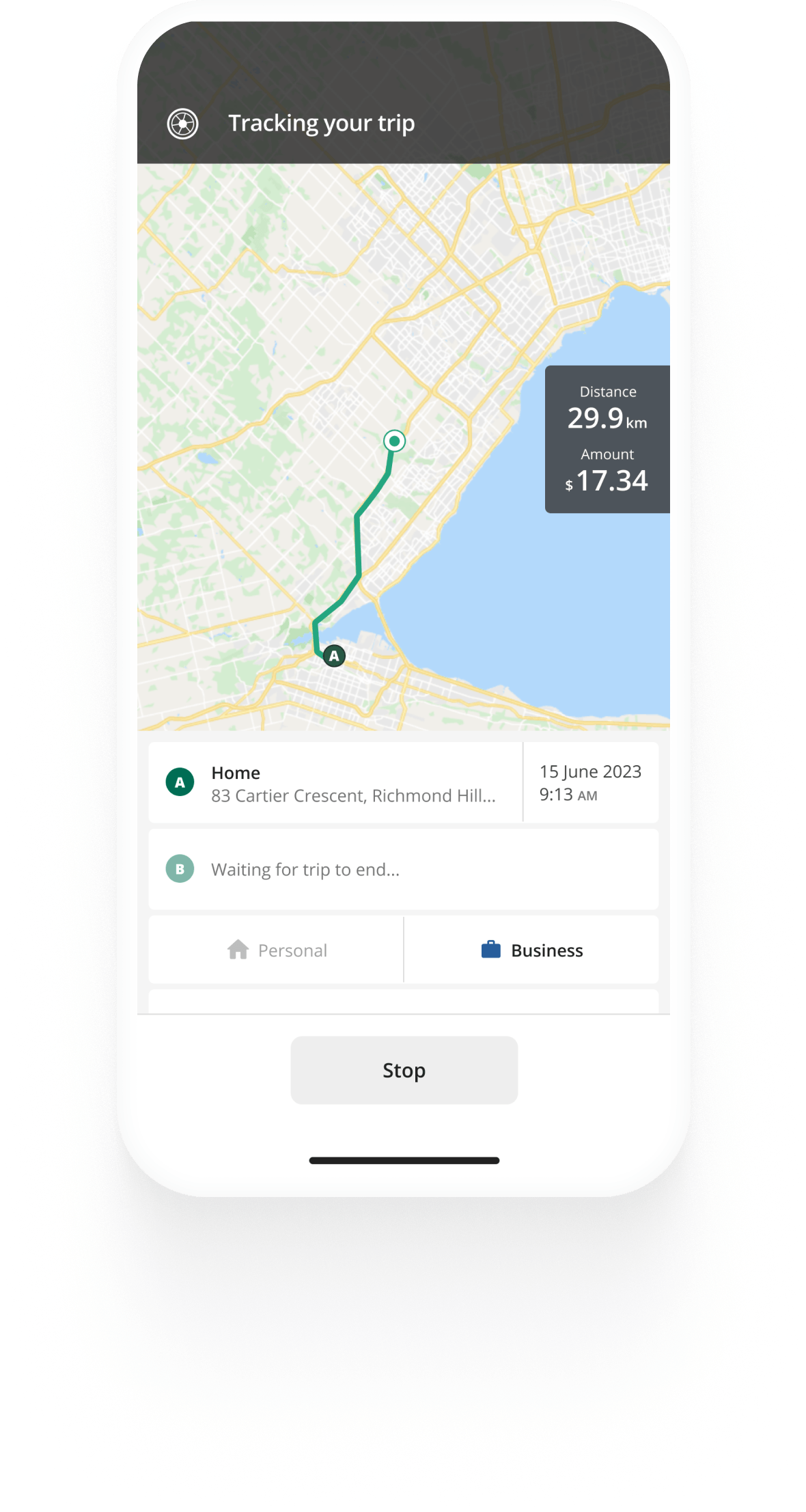Track mileage automatically
Get started.svg)
Self-Employed Tax Deductions you Should Claim in Canada
In this article
How would you like to save money every year by simply claiming back business-related expenses on your income tax return? We sure think it sounds good!
This article explains common tax deductions for self-employed in Canada that you can take advantage of, regardless of whether you are entirely self-employed or hold down a full-time job while also working a second job to supplement your income. Note that it's the CRA's obligation to decide whether the expense was incurred with the intention of earning income.
Here is a list of 8 self-employed tax deductions in Canada that you may be eligible to claim that will maximize your tax return.
Business-Use-of-Home-Office
You can write off a percentage of your rent on your taxes if you work from home. The overall square footage of your flat or house must be divided by the square footage of your home office space to arrive at the amount of this deduction.
For instance, if your workplace occupies 20% of the space in your rented house or apartment, you can write off 20% of your total monthly rent as a tax deduction.


Track business driving with ease
Trusted by millions of drivers
Automate your logbook Automate your logbook

Automatic mileage tracking and CRA-compliant reporting.
Get started for free Get started for freeOperating expenses
Expenses incurred to maintain the operations of your business are known as operating expenses. This includes costs such as:
- Payroll
- Insurance
- Rent
- Office supplies
- Utilities
- Repairs and maintenance
- Travel expenses
- Professional fees.
Computers and other larger office items can also be written off, but only as capital expenses.
Entertainment and meals
If your self-employed business requires you to pay for meals and entertainment, you can claim these costs. According to the CRA, the most you can deduct for meals and entertainment is 50% of the least of the following amounts: The amount incurred for these expenses, or a reasonable amount under the circumstances.
Vehicle expenses
You can deduct business vehicle expenses, such as:
- Insurance
- Gas
- Rental fees
- Repairs
- Maintenance
- Breakdown coverage
An easy solution for tracking mileage
To claim your car expenses, you need to keep a detailed daily logbook of your business and personal trips. An easy way to do that is to use a mileage tracking app like Driversnote. With automatic trip logging and CRA-ready reports, it turns what used to be endless paperwork and missing logs into a few simple taps.
Travel expenses
Other travel expenses associated with your self-employed business can be deducted from your tax return. Examples include:
- Bus, train, and taxi fares
- Airplane tickets
- Accommodation and food
Professional development and educational expenses
As a self-employed individual, you can write off professional development and educational expenses that advance your sector knowledge on your tax return.
Bank charges on your business’s bank account, including interest
Interest and bank charges related to business activities can be written off. Interest on loans taken out for business purposes or to fund property purchase is also deductible.
Note: There are restrictions on the interest you can write off when borrowing money to purchase a car or a zero-emission car, the amount of interest you can write off for undeveloped land, and the interest you pay on any real estate mortgage.
Deductions for bad debts
Bad debt is a sum of money someone owes you but has been deemed uncollectible and written off. If a receivable that won't be paid has already been recorded as income, you can deduct it.
How to claim self-employed deductions at tax time
You should carefully read The Statement of Business or Professional Activities on Form T2125 from the CRA. All deductible costs for your own business must be reported on this form. All your business income and expenses, including those related to your home office, motor vehicle and mileage expenses, asset depreciation, and capital expenditures, are reported on Form T2125, whether you use tax software or pen-and-paper.
FAQ

Tired of logging mileage by hand?
Effortless. CRA-compliant. Liberating.
Top posts
- Company Cars vs Car Allowance: Which Is Best for Your Company?
- Travel Expenses for Employees
- Car Allowances for Employees in Canada
Related posts
Company Cars vs Car Allowance: Which Is Best for Your Company?
Latest update: February 18, 2026 - 5 min read
Explore the advantages and disadvantages of company cars vs. car allowances. Learn how each option affects your business and employees.
Travel Expenses for Employees
Latest update: January 16, 2026 - 2 min read
Need to know how to receive travelling expenses reimbursement from your employer? Learn about CRA travel expenses and if they are taxable as part of your income.
Car Allowances for Employees in Canada
Latest update: January 16, 2026 - 2 min read
Learn everything about car allowances for employees in Canada in 2026 - see if your car allowance will be taxed and what you can use it for.


.svg)